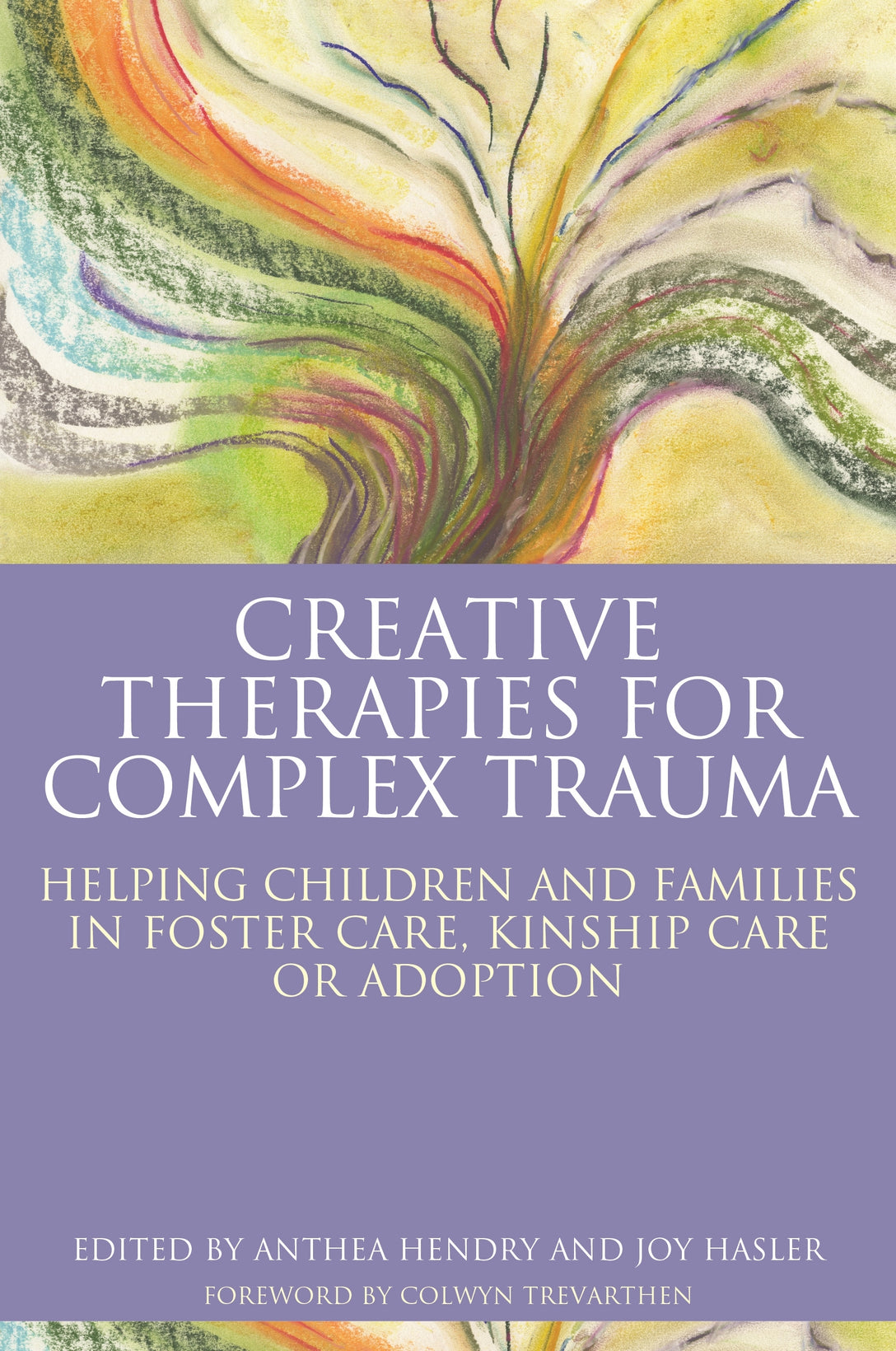
Press Reviews
David Howe, Emeritus Professor of Social Work, UEA, Norwich
In their excellent book, Anthea Hendry and Joy Hasler bring together a range of talented practitioners who explain and explore the dysregulating effects that developmental trauma can have on mind, body and brain, and what might be done to support developmentally traumatised children and their carers. Supported by vivid case examples, we see how the creative arts are themselves creatively used to great therapeutic effect to regulate bodies in distress, feelings in turmoil, and minds that are frightened and sad.
Cathy A. Malchiodi, PhD, LPCC, LPAT, ATR-BC, REAT—Executive Director, Trauma-Informed Practices and Expressive Arts Therapy Institute, Louisville, KY, USA
This book is a welcome addition to all helping professionals and educators who work with children and families challenged by complex trauma. These experienced practitioners provide practical wisdom on not only creative approaches, but also the key elements involved in effective healing relationships and positive attachment. This contribution to trauma literature clearly emphasizes how and why collaborative, creative interventions that include family, school staff and therapists are essential to support reparation and recovery.
Dr Val Huet, Chief Executive Officer British Association of Art Therapists
Attachment theories are now well established as an evidence-based framework that supports client-centred approaches, and that have alerted us to the devastating impact of trauma on child development. It is therefore a real pleasure to recommend this informative and clearly laid-out book to any practitioner interested in helping children and families through the use of creative therapies. Although the focus is on complex trauma and helping children and families in foster care, kinship care and adoption, much of the book content will be relevant to gaining an understanding of how to approach other complex situations. The theoretical chapters in part 1 clearly explained some of the main concepts and enfolded really well as a series. In part 2, contributors' honesty and dedication to their clients shone through all the different chapters, which were very informative about real-life practice. The focus on education in part 3 was also welcome, as the incidence of serious trauma in any average classroom has risen dramatically. This is a well edited book that will be relevant to creative therapists, whether in training, newly qualified or experienced and is above all a good read.
Kate Cairns, Director of KCA
This is an important book. For people who already know as a matter of lived experience that childhood trauma can destroy lives this book will inspire hope and confidence in the capacity of the human spirit to recover. And for those who do not understand the impact of childhood adversity this book will enlighten and instruct through the depth of knowledge shared and the accessibility of the many stories illuminating the impact of trauma and recovery in everyday life. I hope that it will be read by many, and I am sure that those who do read it will treasure it.
Margaret Wilkinson, Training Analyst in the Society of Analytical Psychology; author, Coming into Mind. The mind-brain relationship: a Jungian clinical perspective, and Changing Minds in Therapy: emotion, attachment, trauma and neurobiology
This clear, concise cutting-edge collection of chapters by a wide range of skilled contributors demonstrates how insights from contemporary evidence-based research may be used to enable healing for traumatised children who are not able to live with their birth parents. Its relevance is far-reaching and makes it a 'must have' book for all who work with patients who struggle to overcome the effects of early relational trauma.
Helen Oakwater: Author of’ Bubble Wrapped Children: How Social Networking is transforming the Face of 21st Century Adoption
This is a brilliant book bringing together innovative creative therapies for adopted and fostered children and their families by specialists who have many years of experience of working with distressed or troubled children. If you are an adopter or foster carer you must use therapists who have both read this book and apply the principles.
Dr Kathy Evans, University of South Wales
Creative Therapies for Complex Trauma is a very useful addition to the literature. It draws on the practice experience of an impressive range of therapists, and makes very effective use of case studies to exemplify and explore theoretical issues. Of use to both readers who are new to this are of work and to more experienced practitioners, it is certainly going to be on the reading list for my courses.
Susan Barr, Counsellor and Chair of the Bucks Family Network
BACP - Children, Young people & familiesThis is one of the most useful and hopeful books I have read on the subject. It would be an informative read for anyone connected with an adopted family who is looking for an understanding of the types of therapy available, as well as for new and experienced therapists working with adopted children and their families. In fact, it is a useful book for any professional working with children.
